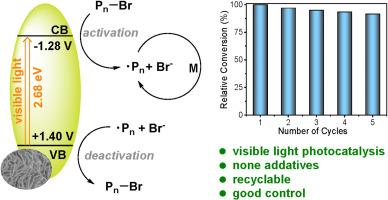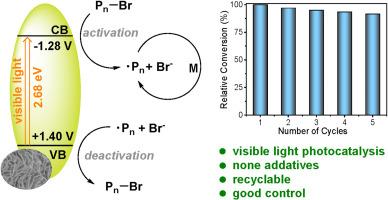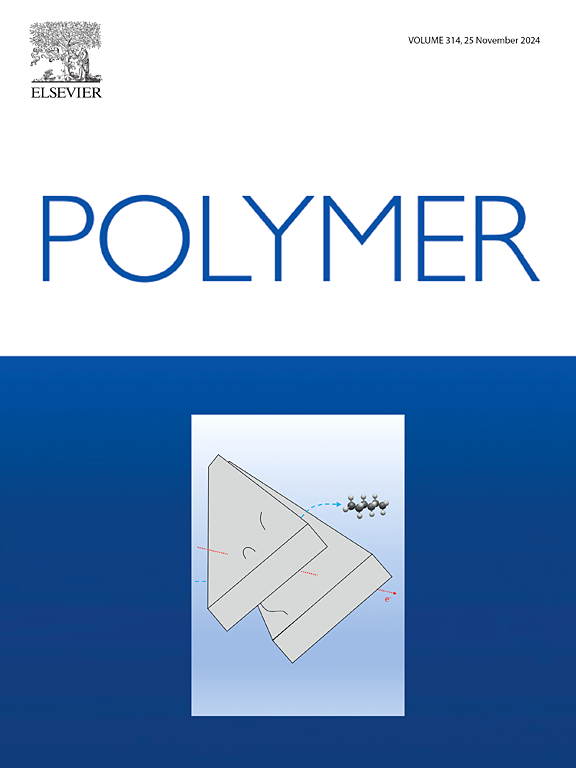Exploring the catalytic performance of recyclable zinc indium sulfide in polymer synthesis: Well-controlled photoATRP of acrylates
IF 4.1
2区 化学
Q2 POLYMER SCIENCE
引用次数: 0
Abstract
Zinc indium sulfide has been used as a heterogeneous recyclable photocatalyst in visible light-induced atom transfer radical polymerization (ATRP). The photocatalyst was found to catalyze ATRP via an oxidative quenching mechanism without any additives. Polymers in high conversion and good control can be obtained. The kinetic study, light on/off experiment and the block copolymer synthesis showed the “living”/controlled nature of the polymerization. The photocatalyst can be reused for five times without obvious loss of control in the polymerization. Metal residue was not detected in the resulting polymers. This strategy provides a noval way for well-controlled polymer synthesis using recyclable visible light photocatalysis.


探索可回收硫化铟锌在聚合物合成中的催化性能:丙烯酸酯的良好可控光 ATRP
在可见光诱导的原子转移自由基聚合(ATRP)过程中,硫化锌铟被用作一种异相可回收光催化剂。研究发现,这种光催化剂可通过氧化淬灭机制催化原子转移自由基聚合,而无需任何添加剂。可以获得转化率高、控制性好的聚合物。动力学研究、光开/关实验和嵌段共聚物合成显示了聚合的 "活"/可控性。该光催化剂可重复使用五次,聚合过程无明显失控。生成的聚合物中未检测到金属残留。这一策略为利用可回收的可见光光催化技术很好地合成聚合物提供了一条新途径。
本文章由计算机程序翻译,如有差异,请以英文原文为准。
求助全文
约1分钟内获得全文
求助全文
来源期刊

Polymer
化学-高分子科学
CiteScore
7.90
自引率
8.70%
发文量
959
审稿时长
32 days
期刊介绍:
Polymer is an interdisciplinary journal dedicated to publishing innovative and significant advances in Polymer Physics, Chemistry and Technology. We welcome submissions on polymer hybrids, nanocomposites, characterisation and self-assembly. Polymer also publishes work on the technological application of polymers in energy and optoelectronics.
The main scope is covered but not limited to the following core areas:
Polymer Materials
Nanocomposites and hybrid nanomaterials
Polymer blends, films, fibres, networks and porous materials
Physical Characterization
Characterisation, modelling and simulation* of molecular and materials properties in bulk, solution, and thin films
Polymer Engineering
Advanced multiscale processing methods
Polymer Synthesis, Modification and Self-assembly
Including designer polymer architectures, mechanisms and kinetics, and supramolecular polymerization
Technological Applications
Polymers for energy generation and storage
Polymer membranes for separation technology
Polymers for opto- and microelectronics.
 求助内容:
求助内容: 应助结果提醒方式:
应助结果提醒方式:


